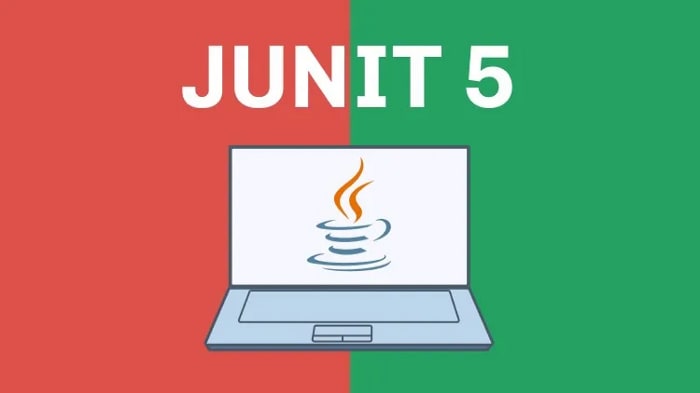Hello Java programmers, if you are looking for the most essential Java libraries to learn and become a more competent Java developer in 2021 then you have come to the right place.
One of the traits of a good and experienced Java developer is the extensive knowledge of API, including JDK and third-party libraries. I spent a good deal of time learning API, especially after reading Effective Java 3rd Edition, where Joshua Bloch advised how to use existing APIs for development rather than writing new pieces of code for common stuff.
That advice made sense to me because of the testing exposure 2nd-party libraries get. In this article, I am going to share some of the most useful and essential libraries and APIs that a Java developer should be familiar with.
However, I am not including frameworks, like. Spring and Hibernate, because they are pretty well known and have specific features.
In general, I am including useful libraries for day-to-day projects, including logging libraries like Log4j, JSON parsing libraries like Jackson, and unit testing APIs like JUnit and Mockito.
If you need to use them in your project, then, you can either include JARs of these libraries in your project’s classpath to start using them or you can use Maven for dependency management.
When you use Maven for dependency management, it will automatically download these libraries, including the libraries they depend on, known as the transitive dependency.
For example, if you download the Spring Framework, it will also download all other JARs on which Spring is dependent, for example, Log4j.
You might not realize, but having the right version of dependent JARs is a big headache. If you have the wrong versions of the JAR, then, you will get the ClassNotFoundException, NoClassDefFoundError, or the UnsupportedClassVersionError in Java. If you have faced them before then you know how painful they are to solve.
Here is my collection of some of the useful third-party libraries Java developers can use in their application to do a lot of useful tasks.
1. Unit Testing Libraries JUnit and Mockito
Unit testing is the single most important thing that separates an average developer from a good developer.
Programmers often are given excuses for not writing unit tests, but the most common excuse for avoiding unit testing is lack of experience and knowledge of popular unit testing libraries, including JUnit, Mockito, and PowerMock.
If you want to learn JUnit and Mockito and you need a resource, I highly recommend Learn Java Unit Testing with Junit & Mockito in 30 Steps by Ranga Karnam on Udemy. It’s a great, hands-on course to learn these useful libraries.
2. JSON Parsing libraries Jackson and Gson
In today’s world of web services and IoT, JSON has become the go-to protocol to carry information from the client to the server. They have replaced the XML as the most preferred way to transfer information in a platform-independent way.
Unfortunately, JDK doesn’t have a JSON library. But, there are many good third-party libraries that allow you to both parse and create JSON messages, like Jackson and Gson. A Java web developer should be familiar with at least one of these libraries.
3. Logging Libraries Log4j2 and SLF4j
Logging libraries are very common because you need them in every project. They are the most important thing for server-side applications because logs are only placed where you can see what’s going on in your application.
Even though JDK ships with its own logging library, there are better alternatives available, like Log4j, SLF4j, and LogBack.
If you are interested to learn more bout logging in to Java then I highly recommend you Java Core Libraries: Java Log System course on Pluralsight.
This is a rare course to learn about when to use logging, why use logging, and how to generate useful log messages. It will also teach you how to use the Java Log System for logging and give you some back practices for logging in your application as well.
4. XML Parsing Libraries Xerces and JAXB
There are many XML parsing libraries, including Xerces, JAXB, JAXP, Dom4j, and Xstream. Xerces2 is the next generation of high-performance, fully compliant XML parsers in the Apache Xerces family.
This new version of Xerces introduces the Xerces Native Interface (XNI), a complete framework for building parser components and configurations that is extremely modular and easy to program.
The Apache Xerces2 parser is the reference implementation of XNI, but other parser components, configurations, and parsers can be written using the Xerces Native Interface. Dom4j is another flexible XML framework for Java applications.
5. Bytecode Libraries Javassist and CgLib
If you are writing a framework or libraries that generate code or interact with bytecodes, then, you need a bytecode library.
They allow you to read and modify the bytecode generated by an application. Some of the popular bytecode libraries in the Java world are javassist and Cglib Nodep.
The Javassist (JAVA programming ASSISTant) makes Java bytecode manipulation very simple. It is a class library for editing bytecodes in Java. ASM is another useful bytecode editing library.
Read the full article 10 AWESOME JAVA LIBRARIES AND APIS THAT EVERY PROGRAMMER SHOULD KNOW
If you want to do anything in Java, more than likely, you will find a library on how to do just that. As always, Google is your best friend to find useful Java libraries, but you can also take a look at the Maven central repository to find some of the useful libraries for your task at hand.







Top comments (0)